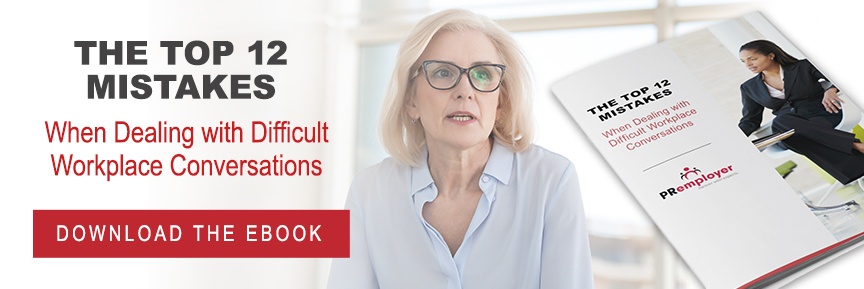
There's a misconception that human resources are a speed bump for company growth, and the processes and procedures needed for compliance are a roadblock to success. In reality, HR is vital to a company's growth because, without the suitable systems and processes in place, a company cannot thrive.
HR creates a more positive and efficient internal work environment through these very systems and processes to allow your business the chance to thrive. Here we'll briefly discuss some of the most effective ways to manage your HR.
-
Communicate Clearly and Be Transparent
Clear communication reduces and potentially eliminates any ambiguity. That is extremely important because ambiguity can quickly lead to misunderstandings and frustrations. When your team doesn't know why they are doing something or how it fits into the bigger picture, they're more likely to make mistakes because they don't understand their goal. Ensuring transparency in all communications is vital for your company's success and helps develop a strong internal culture so that everyone can feel connected.
You have specific and lofty goals for your organization. It is HR's responsibility to develop the internal channels for communication and help you get your team on board to achieve these goals. When you have clear communication, employees know there is no doubt about your company's direction and how they play a role in shared success.
HR can communicate with your team to provide initial guidance and regular updates through:
- Newsletters
- Email updates
- Message boards
Each of these channels can be used to broadly distribute key pieces of general information to achieve transparency. However, HR also needs to handle private and confidential information. Complete confidentiality is key to retaining employee trust. Your HR team needs to be able to recognize what each situation calls for and respond appropriately.
-
Keep Yourself Organized
Organization is essential to the efficient operation of HR, and it requires persistence to accomplish. Maintaining structure helps you stay on top of even mundane tasks like ensuring employee personnel files are up to date. When companies grow rapidly, they often forego the development of these systems, but they are critical for future success.
HR is just like a well-organized closet — you know where everything is when you need it. If an employee has a question about a previous timesheet, you know where to find it. If they have a question about a new internal job posting, you know where to get the info to answer their questions. Without a set organizational structure, it makes it challenging to manage HR effectively.
-
Make Sure the Work Aligns to Your Goals
HR should be viewed as more than a department that only handles paperwork. For the company to thrive, it must be a key player in formulating and executing the company's personnel strategy. One of their primary goals is to recruit and retain top talent. Your company won’t grow without quality staff, nor will you be able to achieve your strategic goals. Innovative recruitment can help you build a team, but retaining that talent requires:
- Effective management of all staff members
- Challenging assignments and developmental opportunities
- Proper coaching and correction of sub-standard performance
- Competitive pay that appropriately rewards those who are most valuable to the organization
Consistently listen to your employees and implement their ideas and input where it’s fitting. That will improve your operations, which benefits both customers and employees, and it makes employees feel heard, valued, and appreciated. The greatest factor determining your organization’s success or failure is their employees’ level of skill, initiative, performance, and customer focus. Your HR team’s input is crucial to develop strategic personnel management, which should itself be one of your top priorities.
-
Keep Your Process Documented
Similar to maintaining your internal organization, keeping processes documented ensures that everyone knows how to do certain functions and does them the same way. Consistency is the goal here. No matter which employee completes a specific task, the process and result should be identical every time. You need to document how processes are done to train all employees to do tasks the same way.
When the process is clear, employees feel more confident in what they're doing and are given the impression you have it together as a company. It also helps the team stay cohesive because if multiple people do tasks the same, it creates smoother handoffs to the people around them. Furthermore, having efficient processes makes employees feel comfortable that their job is secure and that the company is moving in the right direction.
-
Partner with a PEO
Many HR processes take a great deal of time and effort, cutting into your already stuffed day. These processes include:
- Benefits administration
- Risk management
- Training
These items are necessary to running your business but take a significant amount of time and energy from you. Ultimately, these tasks could prevent you from properly managing HR.
However, you can get help from an HR outsourcing partner. A Professional Employer Organization (PEO) can provide you with the support and services you need to help you effectively manage HR. The time a PEO can save you will give you the chance to focus on your employees and their needs and the continued success and growth of your business.
A PEO specializes in HR for you to help save you time and stay in compliance. Trusting the experts at a PEO may also give you the peace of mind that your company avoids costly employee lawsuits and government fines. With a PEO, you can focus on what matters most by focusing on employees and not worry about all of the HR tasks that keep you afloat.
A PEO can Help Your Company Shine
HR is necessary for your business, whether they're creating the processes that help your workers do their jobs to helping those workers get the benefits they need and provides support in every area of your organization. But it's also time-consuming to manage. Creating those processes and an organizational structure requires a keen eye for detail and the time to do it effectively. Proper HR management ensures your company meets employees' needs and helps retain a strong workforce.
A PEO can help with your HR needs by taking on the tasks you don't have time to do. In today's world, it's more important than ever to have a solid HR department that helps keep your company on track and your employees supported.

